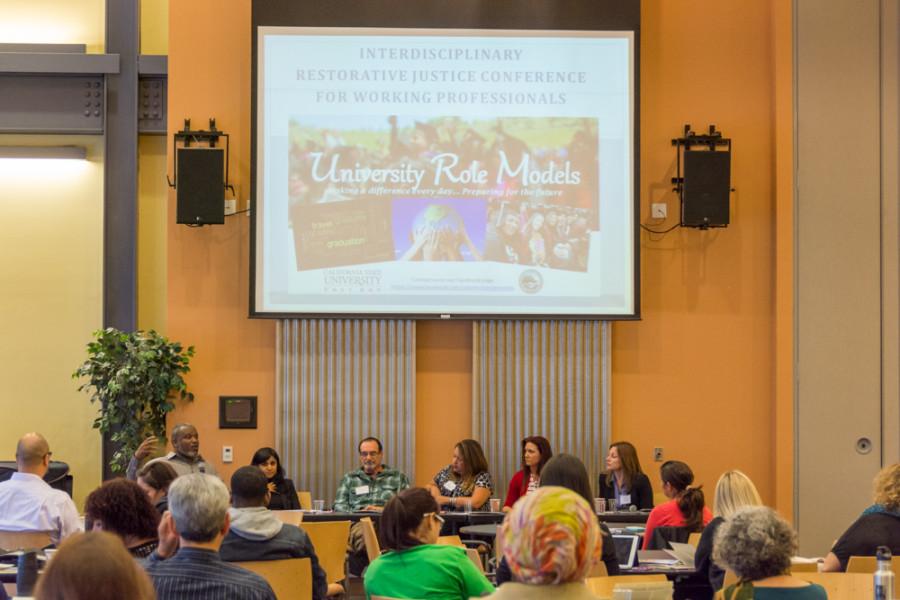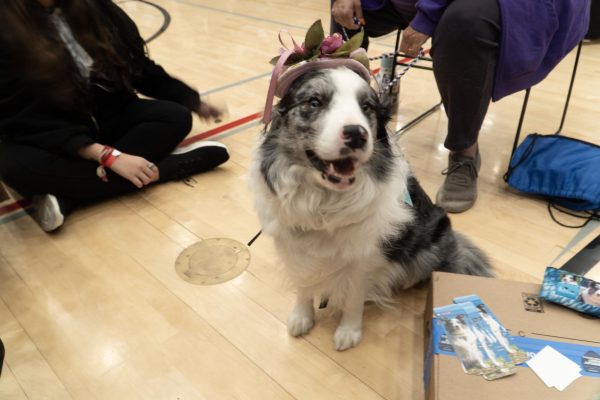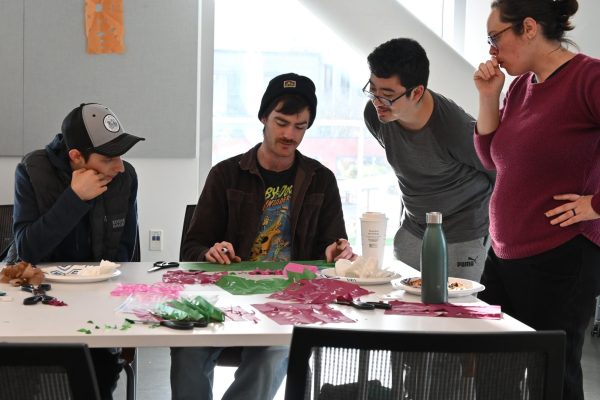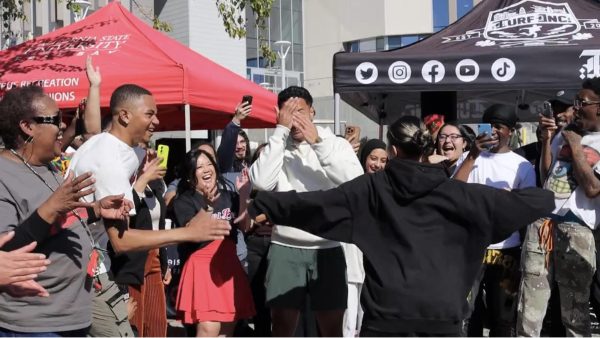Professionals unite for restorative justice
The California State University, East Bay Criminal Justice Department Administration and the University Role Models hosted their third annual restorative justice related event on Friday titled, “Working Together for Restorative Justice in the Bay Area: A Day with RJ Practitioners.”
Restorative justice is a term that might not be familiar to many people. However CSUEB has made it a priority to teach.
According to Silvina Ituarte, a professor in the Department of Criminal Justice Administration, “Restorative justice represents a justice framework that emphasizes community harmony, building relationships and repairing harm,” Ituarte said. “It represents a philosophy of justice and set of approaches used worldwide to promote harmony and peace across an array of issues ranging from small disagreements to acts of genocide in Rwanda.”
The event welcomed social workers, justice professionals, educators, counselors and more with a keynote panel that featured crime survivors and formerly incarcerated individuals who spoke about their experiences.
Over 167 people pre-registered to attend the event and Ituarte hopes the school will continue, “to have a restorative justice conference on campus that will not only promote a campus environment of equity, justice, safety and compassion for everyone, but will also provide leadership in the Bay Area in demonstrating CSUEB’s commitment to these values.”
Several attendees and speakers expressed a lack of commitment to the values that restorative justice encompass and many felt they have a direct correlation to many of the current issues in society today.
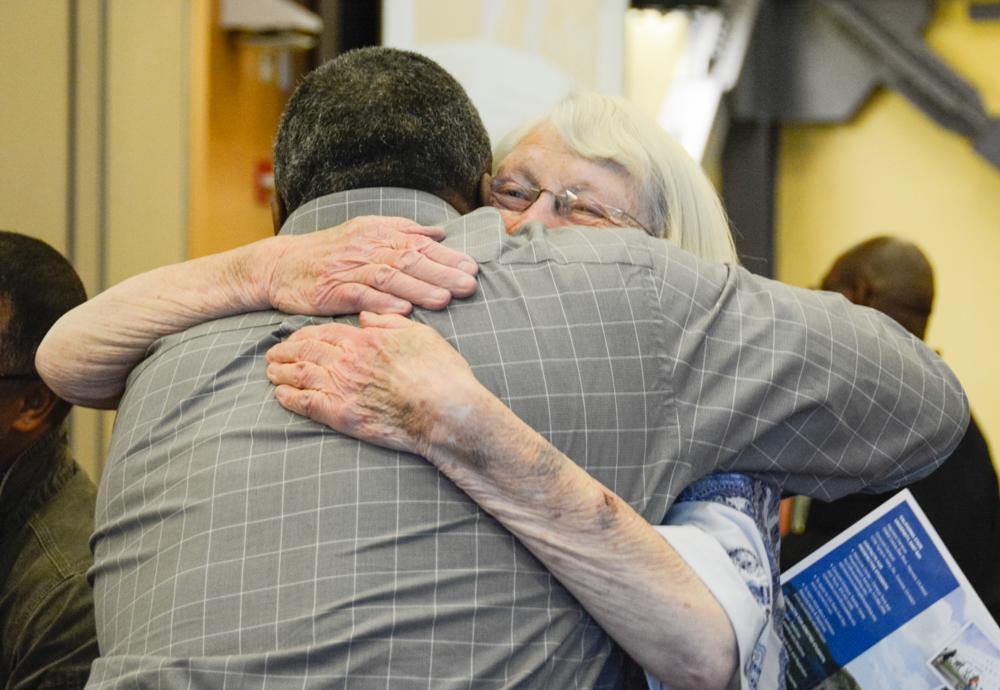
“There is a serious amount of mistrust between minorities and law enforcement in America, nobody can deny that,” student Joseph Munoz said. “Look at Baltimore, Ferguson, Freddie Gray, people are fed up. How can there be a restoration of justice in America if we don’t even trust the people in charge and responsible for the parameters because of years of mistreatment?”
The speakers came from all different backgrounds that included Dionne Wilson, whose husband was a police officer murdered in the line of duty in 2005. Her husband’s killer was eventually caught, convicted and placed on death row.
Delia Ginorio is the Survivor Restoration Program Director at the San Francisco Sheriff’s Department and has become an unofficial expert on restorative justice. She has also been instrumental in bringing the issue into the world of law enforcement, according to CSUEB.
This is the third event that CSUEB has hosted related to restorative justice. The first event in 2013 was a series of events titled “Empathy Week” that also hosted the Red Rover organization whose goal, according to Ituarte, was to “teach students about humane education and demonstrate how to promote empathy through teaching reading skills to young children through the use of books about animals.”
Last year CSUEB hosted its first interdisciplinary restorative justice conference for working professionals, and Dr. Mark Umbreit, a leader in the field of restorative justice, presented the keynote address. With growing numbers of attendees and interest in these events Ituarte is hopeful that the school will be able to continue to host events like these.
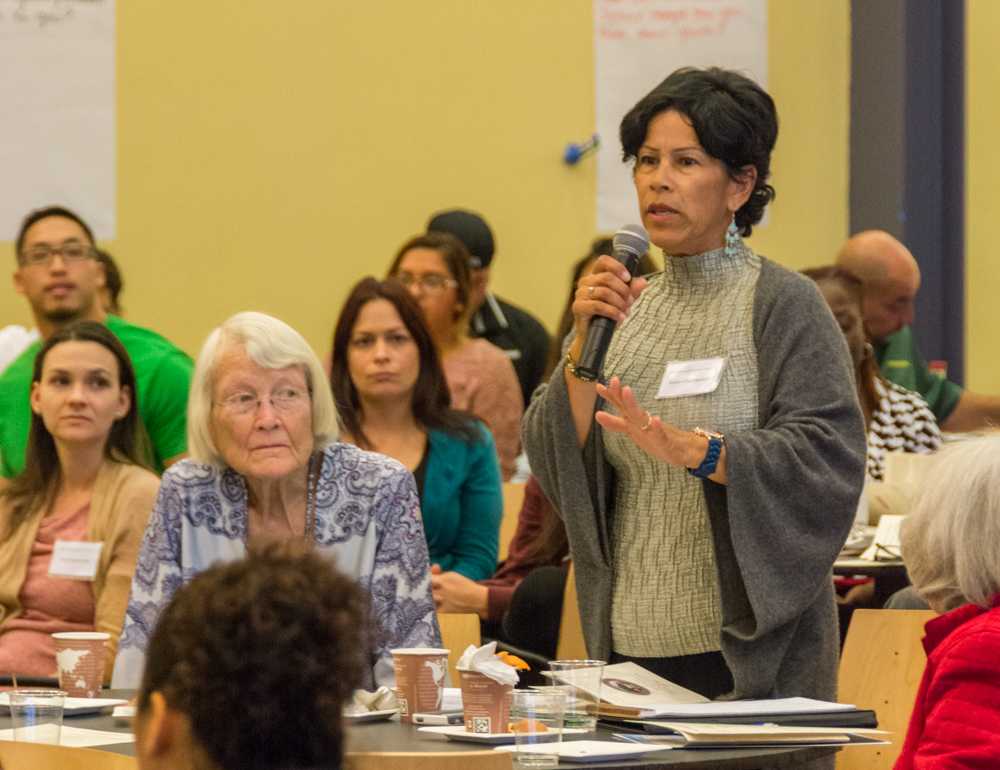
PHOTO BY TAM DUONG JR./THE PIONEER
Troy Williams spoke at the event about how he was serving a life sentence for kidnap and robbery before he was released in October 2014.
While incarcerated, he founded the San Quentin Prison Report; a video and radio production program that airs stories on KALW 91.7 FM from the state prison by inmates.“I wanted to figure out a way to stay in the outside world while I was incarcerated,” Williams said.
“The media a lot of times portray the worst image of inmates possible, but a lot of these people are bettering themselves and doing positive things.”
CSUEB student Jamal Muhammed was impressed with the words of Williams. “His story is so amazing,” Muhammed said. “He is a true inspiration and an example for everybody.”


